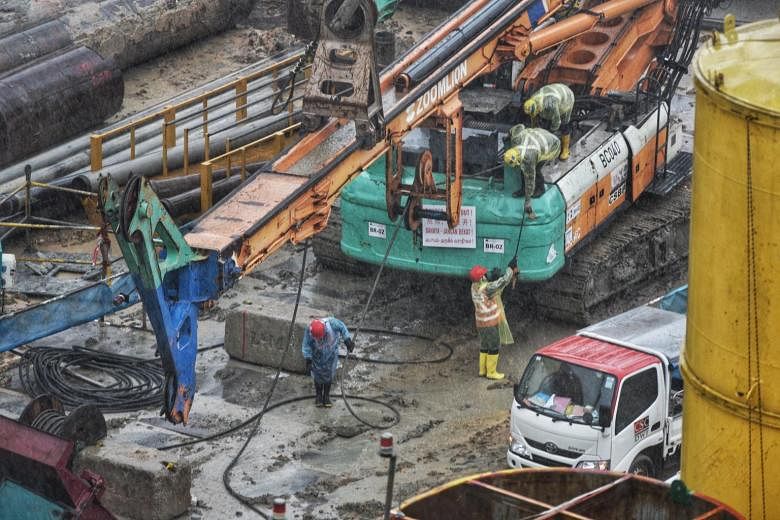SINGAPORE - About 2,400 migrant workers, or half of cases involving kickback offences the Ministry of Manpower (MOM) investigated between 2016 and 2020, continue to be employed here, while the rest choose to return home.
Senior Minister of State for Manpower Koh Poh Koon told Parliament on Tuesday (March 1) that about 20 per cent find new employment, while 30 per cent opt to continue working for their employers after the kickback issues were resolved.
In July last year, Manpower Minister Tan See Leng said in a written parliamentary reply that the ministry investigated an average of 960 cases of kickback offences annually between 2016 and 2020, for a total of about 4,800 cases.
Dr Koh, who is also Senior Minister of State for Health, said the typical amount of kickbacks could range from $1,000 to $3,000.
He was responding to three parliamentary questions from Mr Louis Ng (Nee Soon GRC) on the issue of employers collecting kickbacks from migrant workers.
Kickbacks are illegal payments demanded by employers as a condition or guarantee of employment.
Between 2016 and 2020, MOM took enforcement action against an average of 102 errant employers each year for collecting kickbacks, he said.
On average, there were about five migrant workers affected per employer, he added.
Dr Koh said workers are helped to find new employment here by referring them to employment agency partners, which are committed to not charging these affected employees any fees.
"This would assure workers that they can continue to stay here to earn an income when they report their employers for the collection of kickbacks," he added.
Once a kickback is being investigated, employers will not be allowed to repatriate the affected workers and MOM will require the accused to return the money collected to them.
In recent years, MOM has used data analytics to identify and detect unusual patterns in hiring practices to uncover cases of kickbacks and has stepped up efforts to educate migrant workers.
However, it is more effective if workers come forward to report such malpractices, Dr Koh added.
He said: "Migrant workers who are asked to pay kickbacks should immediately approach MOM for assistance.
"MOM will investigate and take all complaints and whistle-blowing seriously."
If convicted for collecting kickbacks, employers may be jailed for up to two years or fined up to $30,000, or both.
For the offence of abetting the collection of kickbacks, offenders will face the same penalties.


